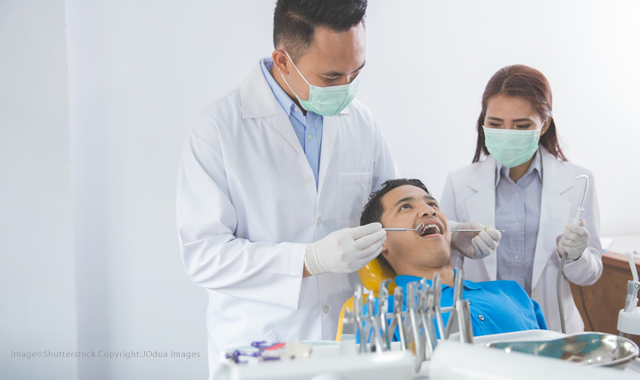Genes can affect the development of caries
A new study from the University of Zurich shows that genetic defects can affect enamel.

While bacteria attacking enamel is the main cause of caries, it’s not the only factor that should be considered, says a team of researchers at the University of Zurich. “We revealed that tooth decay isn’t just linked to bacteria, but also the tooth’s resistance,” says Thimios Mitsiadis, Professor of Oral Biology at the Center of Dental Medicine at the University of Zurich.
A study from a team at the University of Zurich, as reported by the University of Zurich and published on February 7 by the journal Science Signaling, has found a gene complex responsible for the formation of tooth enamel.
Related article: Could this drug mean the end of dental fillings?
The team used mice with varying levels of enamel protein mutations involved in what is known as the Wnt signaling pathway. Because of this pathway, human and animal cells respond to external signals and specifically activate selected genes in the cell nucleus. The signaling pathway is essential for embryonal development, but also plays an important role in the development of cancer or physical malformations.
“All mice with mutations in these proteins exhibit teeth with enamel defects,” explains Pierfrancesco Pagella, one of the study’s two first authors. “Therefore, we demonstrated that there is a direct link between mutations in the genetic blueprints for these proteins and the development of tooth enamel defects.”
Read more studies: New study finds that dental visits can reduce the risk for pneumonia
The team was the first in the world to discover the specific reason why tooth enamel is, or sometimes isn’t, formed. “We discovered that three particular proteins involved in the Wnt signaling pathway aren’t just involved in the development of severe illnesses, but also in the qualitative refinement of highly developed tissue,” says co-first author Claudio Cantù from the molecular biologist research group lead by Prof. Konrad Basler. “If the signal transmission isn’t working properly, the structure of the tooth enamel can change.”
Researchers hope that this new knowledge will eventually help prevent carious lesions in humans. Says Mitsiadis, “New products that hinder the progress of tooth caries in the event of defective tooth enamel will enable us to improve the dental health of patients considerably.”
Episode 31: Dentsply Sirona Implant Announcements
September 30th 2021DPR’s Editorial Director Noah Levine sat down with Gene Dorff, Dentsply Sirona’s group vice president of implants and Dr. Dan Butterman to review several big announcements the company made in the arena of implants during Dentsply Sirona World 2021 in Las Vegas.